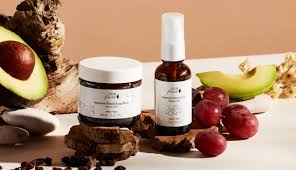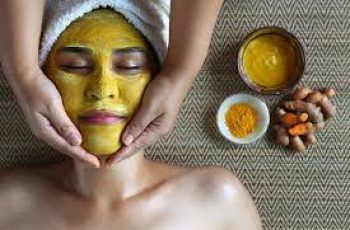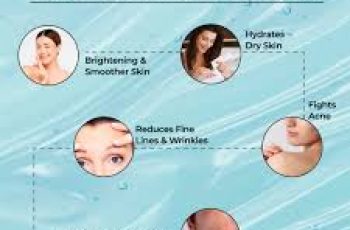
Grapeseed Oil in Skin Care
Grapeseed oil is an extremely popular and affordable ingredient in many skin care products.
It is rich in hydrating fatty acids as well as numerous antioxidant compounds.
It’s diverse set of properties make it useful in treatments of various common skin concerns like eczema, melasma, and wrinkles.
Check out this blog and take the Baumann Skin Type quiz to see if grapeseed oil in skin care is right for you!
Vitis Vinifera (Grape) Seed Oil
Grape seed oil is one of the most popular oils used in face creams. It is safe, easy to formulate and does not have a bad smell. It also has many properties that make it a good ingredient in anti-wrinkle creams.
Grapeseed oil benefits
Grapeseed oil is primarily known for its moisturizing and antioxidant capabilities.
Phenolic compounds (like gallic acid) are good antioxidants which are beneficial in many anti-aging products.
Those and other compounds present in grapeseed like linoleic acid are also effective anti-inflammatories.
Linoleic acid is a hydrating fatty acid, desirable for many skin treatments.
It also contains an appreciable amount of vitamin E, a known antioxidant.
It is an occlusive oil, meaning it prevents transepidermal water loss (TEWL) and helps other ingredients absorb into the skin. (Skin slugging)
With antimicrobial properties, it also has uses in acne treatments for eliminating bacteria, or for use in other infectious skin conditions like a staph infection. (29)
Some studies have even found grapeseed oil might treat certain kinds of tumors without damaging normal cells. (23) More research always needs to be done on cancer treatments with evidence-based FDA trials before their use can be recommended to treat cancer.
What kind of oil is it?
Grapeseed oil is a plant extract primarily composed of unsaturated fatty acids, which means it could be classified as a “dry oil.”
There is a low presence of saturated fatty acids in it as well, which gives it some thickness.
Because grapeseed oil is thick, it is not considered an essential oil even though it is derived from plants; it is instead considered a carrier oil.
Grapeseed oil is a hydrating unsaturated oil rich in natural antioxidant phenolic compounds.
vitamin e in grapeseed oil
What are the active compounds?
Grapeseed oil is rich in various fatty acids, phenolic acids, tannins, flavonoids, and stilbenes. (3)
Grape seeds are the most common source of resveratrol, a potent antioxidant, anti-cancer compound to which grapeseed oil owes many of its benefits.
It has a high concentration of gallic acid, for example, a phenol known for its significant antioxidant properties. (5)
Soothing, unsaturated linoleic acid is the most common fatty acid in grapeseed oil. (2)
Oleic acid is also found in low concentrations, which aids in the absorption of other ingredients by creating penetrable holes in the skin barrier.
Some saturated fatty acids are found in trace amounts in grapeseed oils depending on the variety of grape processed. (4)
Grapeseed oil also contains a significant amount of vitamin E, a potent antioxidant and antimicrobial compound. (2)
Grapeseed oil side effects
Grapeseed oil is not known to pose any particular risks of side effects.
Allergies to grapes or grapeseed are extremely rare.
As an occlusive, overuse of grapeseed oil can result in overhydrating the skin, which can result in a change to microbiome.
is grapeseed oil safe
Is it safe?
Grapeseed oil is an extremely safe ingredient in skin care in most kinds of regimens.
According to research organizations like the CIR, there are no common safety concerns associated with grapeseed oil.
No studies have found evidence of toxicity to normal human cells following oral or topical use.
It is considered a clean ingredient in beauty products and skin care.
Grapeseed vs olive oil
In terms of fatty acid composition, grapeseed oil is primarily composed of linoleic acid while olive oil is mainly oleic acid.
Otherwise, the two oils share many antioxidant phenolic compounds in common such as various tocopherols and carotenoids.
Because olive oil contains so much oleic acid, it is better suited to oilier skin types who are not at risk from irritation.
Olive oil is also comedogenic, which means if you have acne prone skin, olive oil is likely to cause clogged pores.
Grapeseed oil does not contain nearly as much oleic acid and is not comedogenic, meaning it is safe for dry skin and for use in acne.
Both oils are antioxidizing and antimicrobial.
Specific uses
Grapeseed oil is extremely versatile with very few drawbacks, making it one of the most popular ingredients in many skin care products.
It contains many beneficial compounds used to treat various conditions,
To find out whether grapeseed oil is a good fit in your custom skin care regimen, take our dermatologist- developed quiz and shop by your Baumann Skin Type!
Take the Quiz
Acne
Grapeseed oil is non-comedogenic, meaning it does not clog pores which leads to acne.
In addition, it is rich in antimicrobial and antioxidant phenols which eliminate acne causing bacteria on the skin.
If you have very oily skin as well as acne, adding more oil onto your skin (even a good oil like grapeseed) is not always advised.
Make sure to learn about the skin’s natural oil production to understand more about when to use oils in your acne routine.
Hair care
Grapeseed oil is one of the best oils for use in most kinds of hair care.
Grapeseed oil is loaded with hydrating fatty acids that are wonderful for moisturizing and repairing hair follicles.
The linoleic acid in it is particularly good as an anti-inflammatory compound, which is good for treating an irritated scalp.
Because it is not a comedogenic ingredient, it poses very little risk of clogging the pores on your hairline.
Be sure not to apply directly to the roots if you don’t shampoo more than a few times per week. Oil buildup can result in greasy feeling and looking hair.
grapeseed oil for dry skin
Dry skin
Grapeseed oil is full of hydrating, moisturizing compounds which are great at repairing the skin barrier and preventing damage to dry skin.
The most common usage of grapeseed oil is in moisturizers designed for treating dry skin.
Conditions like eczema are also treatable with grapeseed oil; it serves as an effective emollient and antioxidant as well as repairing the skin barrier.
Skin lightening
Because it is primarily composed of unsaturated fats and contains a lot of resveratrol, grapeseed oil is a weak skin lightening tyrosinase inhibitor, meaning it can be used in moisturizers used after treatments for hyperpigmentation.
Dark spots, melasma, and sun damage are all kinds of hyperpigmentation that benefit from using a skin lightener like grapeseed oil.
Applying the oil on its own onto the skin will not produce any significant results.
Grapeseed oil, like many other plant based skin lighteners, works best in combination with other skin lightening ingredients like:
Arbutin
Cysteamine
Ferulic acid
Hexylresorcinol
Kojic acid
Licorice extract
Niacinamide
Resorcinol
Wrinkles
Grapeseed oil is rich in antioxidant phenols, flavonoids, and other compounds which are beneficial in many kinds of anti-aging products and treatments.
Hydrating antioxidants with occlusive properties like grapeseed oil work great alongside ingredients like retinoids.
There are many anti-aging ingredients that can be combined with grapeseed oil such as:
Argiriline
Exosomes
Hyaluronic acid
Vitamin C
Best products with grapeseed oil in skin care
Once you’ve taken the quiz, check out some of my favorite products containing grapeseed oil:


